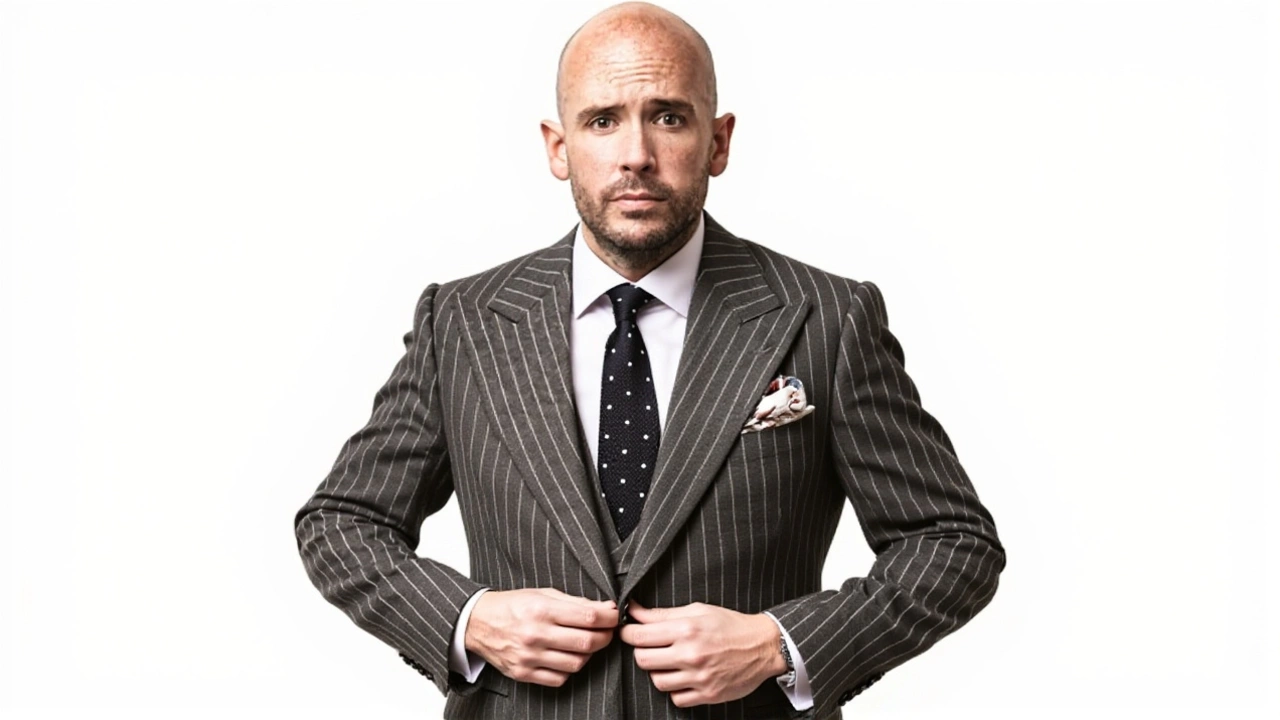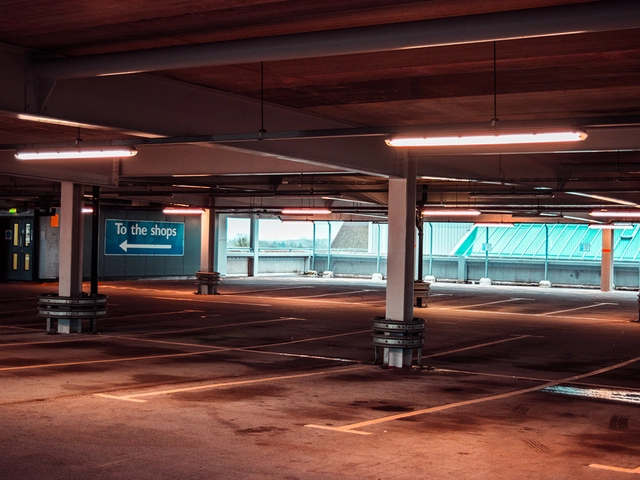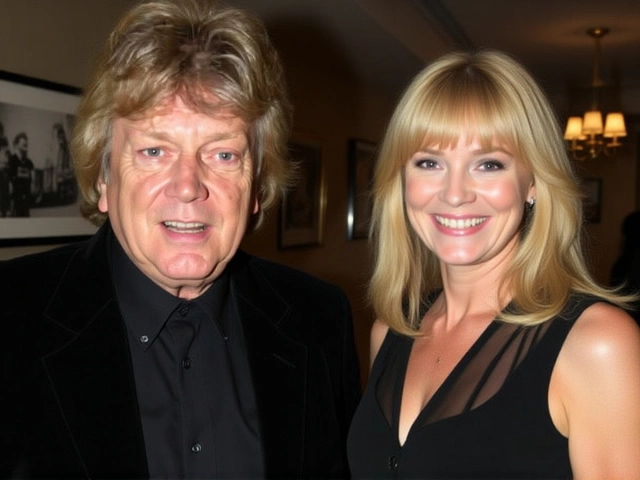When Tom Allen told Attitude magazine that "being funny was a way of making the world OK," he wasn’t just cracking a joke—he was laying bare a survival strategy forged in childhood loneliness and societal silence. The 41-year-old British comedian and television presenter spoke candidly in a recent interview, revealing how his eccentricity and queer identity shaped his comedy, his relationships, and his very sense of belonging. The piece, published in the London-based LGBTQIA+ culture magazine, comes at a moment when visibility feels both urgent and fragile. Allen, often called "Everybody’s favourite fast-talking TV comic," doesn’t just entertain—he connects, especially with those who’ve ever felt too odd, too loud, too much.
From Quiet Kid to TV Fixture
Allen grew up in a small town in Gloucestershire, where being openly different wasn’t just risky—it was isolating. "I didn’t have the words for being gay until I was 18," he told Attitude. "But I knew I was different. So I became the class clown. If I could make someone laugh, they wouldn’t look at me like I was broken." That instinct—using humor as armor—stuck. By his mid-twenties, he was performing in fringe theaters across the UK, slowly building a reputation for rapid-fire wit and emotionally raw storytelling. His breakthrough came not with a stand-up special, but with a guest spot on Graham William Bradley Norton’s BBC One show, The Graham Norton Show. In a segment uploaded to YouTube with video ID n_GrzWY4dYY, Allen recounted a childhood memory involving a stolen garden gnome and his mother’s bewildered reaction. Norton, known for his own sharp, self-deprecating humor, sat silent for nearly ten seconds afterward. The YouTube description captured it simply: "Norton was SPEECHLESS."The Norton Connection: More Than a Guest Spot
That moment wasn’t a fluke. Allen’s chemistry with Norton runs deeper than punchlines. Both men are openly gay, both use wit to navigate a world that often misunderstands them, and both have become pillars in British LGBTQIA+ media. Allen has since returned to Graham Norton’s show multiple times, and in 2023, he stepped in as substitute host for The Graham Norton Radio Show on Virgin Radio, a station owned by Wireless Group and headquartered in London. The show, sponsored by Waitrose & Partners, gave Allen a platform to riff on everything from dating apps to Brexit-era Britishness. The second episode of his guest stint is archived on Acast, though listeners quickly noticed his trademark blend of absurdity and tenderness—like when he compared his grandmother’s knitting habits to "a slow-motion protest against capitalism."Attitude 101 and the Weight of Visibility
Allen’s interview with Attitude didn’t happen in a vacuum. It followed his appearance at Attitude 101, a high-profile LGBTQIA+ gathering in London where he shared the stage with Norton. Virgin Radio described the evening as "a very memorable evening together," and for good reason: the two men, both in their 40s and 60s respectively, spoke openly about growing up gay in a pre-social media Britain—where representation meant hidden magazine articles and late-night TV cameos. The event took place amid growing tension in the UK’s cultural climate. Just weeks before, Chris Dunne, CEO of Outvertising, warned that "we’re queer people going through a very difficult period," citing rising hate crimes and legislative attacks on trans rights. Allen’s candidness, then, wasn’t just personal—it was political.
Why This Matters Beyond Comedy
Allen’s story echoes a broader truth: for many LGBTQIA+ people, humor isn’t just a career—it’s a lifeline. A 2023 study by the UK’s Stonewall charity found that 68% of queer youth use comedy as a coping mechanism for social anxiety. Allen doesn’t claim to be a therapist, but his audience treats him like one. "I get letters from teenagers," he said in the Attitude interview. "They say, ‘You made me feel like I could be loud and still be loved.’ That’s the real reward. Not the TV contracts. Not the red carpets. That." His upcoming appearance at Comic Relief Red Nose Day 2025—promoted in a YouTube clip with video ID zmdW11r3TOo—will likely be another moment where he turns vulnerability into connection. Whether he’s hosting, performing, or simply sitting in a chair telling a story about his cat’s disdain for vacuum cleaners, Allen’s power lies in making the strange feel sacred.What’s Next for Tom Allen?
There’s no official word yet on whether Allen will host his own BBC series, but rumors swirl. He’s been quietly developing a semi-autobiographical sitcom about a gay man navigating his 40s with a dysfunctional family and a stubbornly optimistic outlook. Meanwhile, Attitude magazine continues to archive his interviews under its dedicated Tom Allen section—a digital shrine to a man who turned his quirks into a legacy. In an industry that often demands conformity, Allen’s refusal to shrink has made him one of Britain’s most quietly revolutionary figures.Frequently Asked Questions
How did Tom Allen’s upbringing influence his comedy style?
Growing up in a conservative Gloucestershire town, Allen used humor to deflect judgment and cope with isolation. He’s said he became the "class clown" because laughter was the only way to avoid being labeled as odd or broken. This led to his signature fast-talking, emotionally layered style—where jokes about garden gnomes or knitting grandmothers conceal deep truths about belonging.
Why is Graham Norton’s reaction to Allen’s stories significant?
Norton, a longtime LGBTQIA+ advocate and master of awkward silences, was reportedly left SPEECHLESS during one of Allen’s segments—a rare moment on his usually chaotic show. That silence spoke volumes: Allen’s storytelling was so honest and unexpected that even a seasoned host couldn’t respond with a joke. It underscored how Allen’s humor cuts deeper than surface-level comedy.
What role does Attitude magazine play in Tom Allen’s public narrative?
Attitude magazine, published by Stream Publishing Limited in London, has become a key platform for Allen to discuss his identity beyond entertainment. The magazine’s archive features multiple interviews where he unpacks his sexuality, mental health, and the pressures of being a visible gay man in media—context that mainstream outlets rarely provide.
How does Allen’s work connect to broader LGBTQIA+ struggles in the UK?
His interviews coincide with rising anti-LGBTQIA+ sentiment, including legislative threats and hate crimes. By speaking openly about his journey, Allen counters narratives of silence. His collaboration with Outvertising’s Chris Dunne and participation in events like Attitude 101 position him as part of a quiet resistance—using visibility and humor to humanize queer experiences during a hostile cultural moment.
What’s the significance of Waitrose sponsoring The Graham Norton Radio Show?
Waitrose & Partners, a premium British supermarket chain, aligning with a show hosted by openly gay figures like Norton and Allen signals corporate support for LGBTQIA+ representation in media. Unlike performative allyship, this sponsorship—spanning years and guest hosts—suggests a genuine commitment to inclusive content, subtly normalizing queer voices in everyday British life.
Will Tom Allen’s upcoming Red Nose Day appearance be different from his past ones?
While details are scarce, Allen’s participation in Comic Relief Red Nose Day 2025 comes at a time when he’s more publicly reflective than ever. Past appearances focused on charity sketches; this time, he’s likely to blend humor with personal testimony—possibly using the platform to advocate for queer youth mental health, a cause he’s quietly championed in interviews since 2022.





